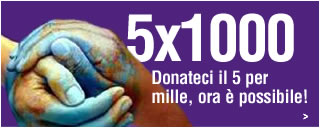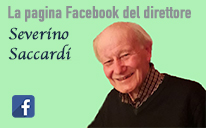(Web conference held on September the 30th 2020 by Testimonianze and Europe Direct Florence: Conference proceedings)
The Conference: “Politics, Economy, Culture: three European Challenges”organized by “Testimonianze“ with the support of “Europe Direct Florence” was held as an online Webconference mainly for two reasons: first of all “Testimonianze” had to take into account the ongoing health situation and secondly the review aimed at reaching the largest audience possible. The speeches held by scholars, experts and institutional figures regarded traditional controversial European affairs (such as the definition of an institutional form able to tackle the challenges of our Time, economic and financial systems, intergenerational relationships, migrations and the enhancement of the cultural field) that have become even more complex by the consequences of the ongoing COVID-19 pandemics. Such speeches and further in-depth debates (followed by plenty of internauts both on the website of “Testimonianze” and on the one of “Europe Direct Florence”) are now collected in this monothematic section.
Abstracts of the articles from the volume:
The Topic
China and the US: (Plausible and Deceptive) Interpretations of a Rivalry between Great Powers
By Rodolfo Ragionieri
In the relationships between two superpowers such as the US and China, which are competing for the global hegemony, several elements come into play making it difficult to analyse and even more challenging to forecast possible evolutions, also because referring to theories originated and applied in different contexts from the one referred to is not always correct. As for the so-called “Thucydides’ Trap”, which consists in the inevitability of a war between the (relatively or absolutely) declining great power and its ascending challenger, it would be inevitably desirable that in this case it did not take place.
Cultures and Religions
All Brothers
By Vannino Chiti
During his papacy Pope Francis suggested believers and non-believers in an ecumenical dialogue going beyond the borders of the Catholic Church two fundamental messages expressed in the encyclicals Praise Be to You (Laudato si’) and All Brothers (Fratelli tutti) addressing the great challenges of our present day. The first one is our relationship towards the environment and our caring attitude towards the planet. The second one (not less complex than the first one) is the coexistence between human beings with a goal to achieve: creating a more adequate civilization inspired by the Francis of Assisi’s meaningful message of brotherhood.
Pope John Paul II: A Pope between two Millennia
by Alessandro Andreini
In this article we sketch Karol Wojtyla’s personality and personal journey from his Poland to the papal throne. It was (like Polish Catholicism) an engaged pontificate, which, as Cardinal Stefan Wyszyăski already predicted, accompanied the Church during the transition between the two millennia. He was a Pope, who opened the Church to the world, to an interreligious dialogue, to the youngsters. He was immediately seen as a saint and canonized not long after his death. In retrospect it is possible to understand how Pope Wojtyla had to address several challenges and contradictions within the Church, which can be found nowadays during Pope Francis papacy again and, which seem to hold back his forward-thinking personality.
“Have no Fear”: A Critical Reinterpretation of Pope John Paul II’s Pontificate
By Bruno D’avanzo
Fifteen years have now passed since the death of Pope Pope John Paul II in 2005. This time-lapse allows us to draw a balance of a complex pontificate in a crucial moment of European history, to which Pope Wojtyla firmly tried to point out a direction. He was a brave man and in a certain way contradictory. He was admired by the believers but also criticized for his traditionalism. A personality on whom it might be important to freely reflect again.
Carlo Bo and the “Scandalo della speranza”
by Angelo Arsena
This article concerns Carlo Bo’s critical and hermeneutical analysis of hope. His interpretation of hope is deeply bound with the ancient Greek and Jewish traditions. Those two are the starting points of a journey that ends with the miscellaneous work Scandalo della Speranza (Scandal of Hope), in which the writer engages a conversation with the facts and the personalities of his time. He develops as well the idea of a counter-factuality of hope, which can be located beyond the weight of mere events, data and numbers. We can also find a red thread linking the lesson of Saint Paul (reinterpreted in a 20th century framework and very actual indeed) and Bo’s thoughts
Mr. Malgesini also known as Father Roberto
by Francesco Bezzi
This article is a recollection of Father Roberto Malgesini’s tragic biography and his spiritual journey in the form of an oration. He was known as “the priest of the last” for his commitment in helping migrants and drop-out people. He was killed not far from his parish in Como, when he was about to give (as he always did) hot meals to the poor. A homeless with mental disorders, who was given help by Father Malgesini, is accused of the priest’s murder.
Connections on the Paths of Critical Thinking: Aldo Capitini and Albert Camus
by Mario Martini
Aldo Capitini, the main Italian representative of the non-violent movement, and Albert Camus, the intellectual, who meditated on the sorrow of the Human condition, share an unbending ethical tension, which makes them the ambassadors of a specific mindset that refuses the violence of the authority: they refuse wars, capital punishments, imprisonments and tortures and defend the victims and the last. The renewed relevance of their message, which encourages our critical thinking towards a world that refuses to be questioned, shall be positively underlined.
Polis
Boulanger or the Historical Roots of Populism
by Gabriele Parenti
The following article is a brief parable of the French general and politician Georges Ernest Jean-Marie Boulanger (1837-1891). He was War Minister during the war of 1886 and became popular thanks to his attitude towards Germany during the 1887 Crisis, which incarnated the idea of the “revanche”. The Boulangist movement headed the national party and was backed by several political movements to the point of obtaining a seat in the Parliament and striving to the Presidency of the Republic. He committed suicide in Bruxelles, where he took shelter after a trial for treason. He was then forgotten by his followers.
The Planetary Human
David Sassoli A Europe Capable of Rethinking Itself
Piero Meucci and Severino Saccardi Why did we Organize this Conference?
Cosimo Guccione The Next Generation EU (NGEU) Agreement and the Future of the European Union
Guidalberto Bormolini Out of the Crisis Together, Beginning with Ourselves
Francesco Rutelli Rethinking Cities. Urban models in Covid-times
Ilaria Bugetti Recovering from the Bottom
Maurizio Landini Work and Social Question in Times of Crisis
Nadia Urbinati European Union and Democracy
Vannino Chiti The four European Goals
Włodek Goldkorn Why Central and Eastern Europe is no “Other Europe”
Sara Nocentini The Europe of Culture
Laura Coser Young Peace Leaders
Piero Meucci and Severino Saccardi A Conclusion
Civil Society
“Kirikuci” a Migrant Tailor’s shop
by the organization “Kirikuci”
“Kirikuci” is an organisation composed of people from all over the world, who have found in the Sienese territory the chance to step out of the reception camps’ isolation. Thanks to the local volunteers they organise a rewarding working environment. They got a training and became seamstresses and tailors, who have the opportunity to express their creativity and their culture of origin into their creations by manufacturing and selling the products of their “migrant tailor’s shop”.
Multimedia
The Pharmacist’s Son becomes a Psychiatrist
by Michele Zappella
The book Il figlio del farmacista (The Pharmacy’s Son) is Mario Tobino’s debut novel. It is an autobiographical account of Tobino’s experience in his father’s pharmacy and first steps as a psychiatrist in the hospital of Ancona, which is an intense experience of education as both a scientist and writer. This contribution concerns the great topic of psychiatry, which is however very different compared to Basaglia’s vision. As a matter of fact, Tobino will disagree with Basaglia on closing down psychiatric hospitals. We should reflect on the ideas of both in order to improve the treatment of psychiatric patients.
Robert Walser, Henry David Thoreau and the Art of Walking
by Sergio A. Dagradi
In times of forced home-staying walking is a desire and a dream. This is the reason why manifold routes both in the countryside and in the city, where one can go hiking, are suggested. Two intellectuals, the Swiss Robert Walser and the North-American Henry David Thoreau pointed out the Art of walking in their two works: Der Spaziergang and Walking, or the Wild. The habit of walking, which gave them the opportunity to reflect on the world and on nature, is analysed from two different perspectives
1958-1979 Articles
The Historical Threshold
by Ernesto Balducci
We bring back up again a text by Ernesto Balducci was published 1978 on the volume 208 of “Testimonianze”. It is now online (on www.testimonianzeonline.com) as part of our open access’ project, which consists in giving free access to the articles published on the review since 1958 until his death in 1992. The project supported by the “Fondazione CRF” currently includes the online publication of Balducci’s articles between 1958 and 1972. It is our intention to continue the project until we reach a complete online publication of Balducci’s articles. Our aim is to bring his thought, which is still highly current, to the widest audience possible.






